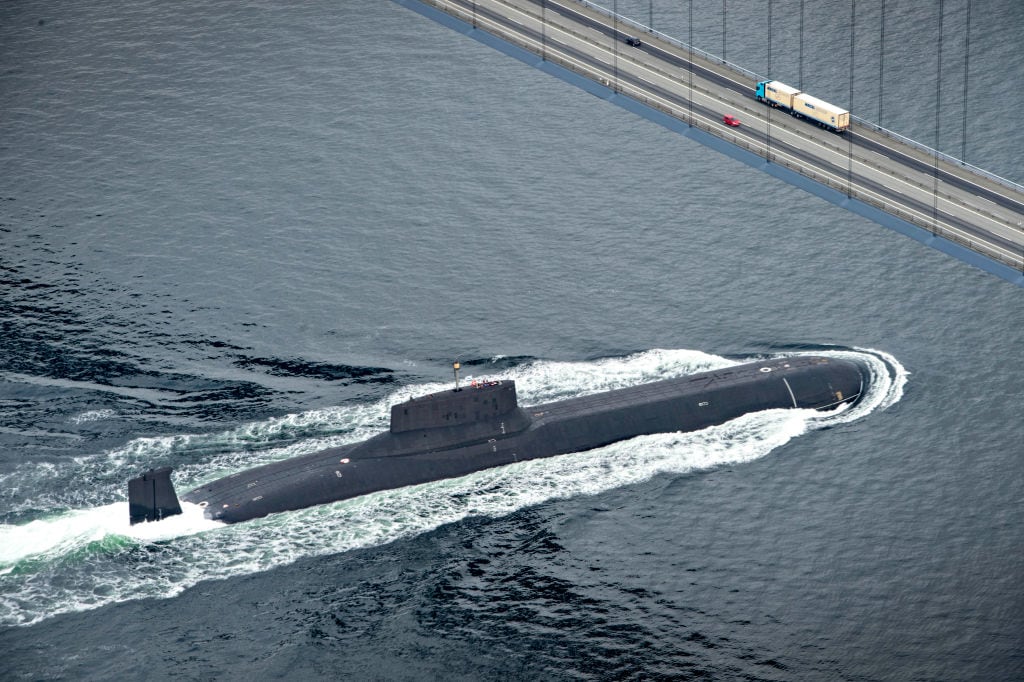MUNICH — Israel Prime Minister Benjamin Netanyahu compared the Iran nuclear deal to the 1938 Munich Agreement between European powers and Adolf Hitler: A failed act of appeasement, which in this case “has begun the countdown to an Iranian nuclear arsenal in a little more than a decade.”
It’s a notion he shared at the Munich Security Conference that was strongly and passionately denied by John Kerry, former secretary of state, who shortly after said any claim that Iran could have nuclear weapons in 10 years is “fundamental not accurate” and “physically impossible.”
Click here for full coverage of the Munich Security Conference
Specifically, Netanyahu pointed to three flaws in the Iran deal, including lack of adequate restrictions on ballistic missile development, lack of comprehensive inspections, and eventual “free reign” to enrich uranium, once the 10-year restrictions expire. This creates a virtual highway to nuclear capabilities that are a direct threat the region, said the prime minister.
“I don’t care about the agreement. I have one goal in mind — keep Iran from having nuclear weapons,” he said. “You have to fix it. [If] you can do it in the context of the deal, fine. If you can’t scrap it.”
From his perspective, any automatic sunset clause, is a failure if not linked to a change of behavior, a cease of aggression.
“Can that be done by Iranian consent? I doubt it. But I for one do not think that if these conditions are put forward that Iran will break away to the bomb,” Netanyahu said. “That would be foolish. They only have enough enriched material for one device. If they wait 10 years, which is the whole problem with the deal, they’ll have enough material for 100 devices, 200 devices, a whole arsenal.”
But Kerry, who engineered the Iran nuclear deal in 2015, countered the prime minister’s claims, pointing to eight years of restraints on missiles — far more than the zero years sought by Iran as well as Russia and China. He also noted that prior to the agreement, Iran had 27,000 centrifuges, 19,000 spinning and enriching, and 12,000 kilograms of enriched uranium. He pointed to the 130 additional inspections on the ground today — denying that they can’t take place on military locations as stated by Netanyahu — and to a limitation of a 300-kilogram stockpile for 15 years and 3.67 percent enrichment.
The particulars of the deal were not concessions, Kerry said, but rather “strategic thinking based on the Bush administration experience for all the prior years, when they [sought a] no enrichment policy. It went nowhere. It did nothing…If your house is on fire, are you going to refuse to put it out because you are concerned it might light on fire again in 15 years?”
In 2013, “Iran had already mastered the nuclear fuel cycle,” Kerry continued. “And bombing was not about to put that genie back in that bottle... It’s critical for Europe, the world, to make sure we hold on to this agreement. To go backwards, we know what the world looks like without the Iranian nuclear agreement. It’s not a better place.”
RELATED

Debate about the agreement has once again boiled over for a couple of reasons. Last month Donald Trump waived a raft of sanctions against Iran as required under the nuclear agreement, but said they would be the last of any such waivers he will sign without radical changes to the deal. Trump is calling for immediate access to all sites by international weapons inspectors and the indefinite extension of limits on Iran’s uranium enrichment and other nuclear activities. General consensus is that Iran will never agree to such terms.
At the same time, tensions in the Middle East grow as Iran becomes increasingly hostile, often by way of proxy militias. Earlier this month, the Israeli Air Force intercepted an Iranian drone that was a "copy" of a stealthy U.S.-built RQ-170 Sentinel downed by Iranian forces over Iranian territory in 2011.
Netanyahu referred to the incident, holding up what he claimed was a piece of the drone, and asking Iran’s minister of foreign affairs, Mohammad Javad Zarif, scheduled to speak later the same morning, if he recognized it. “You should. It’s yours.”
“Israel will not allow Iran’s regime to put a noose of terror around our neck,” Netanyahu said. “We will act without hesitation to defend ourselves. And we’ll act not just against Iran’s proxies, but against Iran itself.”
Jill Aitoro is editor of Defense News. She is also executive editor of Sightline Media's Business-to-Government group, including Defense News, C4ISRNET, Federal Times and Fifth Domain. She brings over 15 years’ experience in editing and reporting on defense and federal programs, policy, procurement, and technology.








